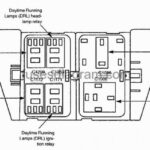Purchasing an OBDII scanner should simplify car diagnostics, but sometimes, the experience can be fraught with issues, leading to significant frustration. When investing in tools like the Craftsman OBDII ABS 87702 scanner, users expect reliability and dependable support. However, experiences can vary widely, and the lack of adequate customer service can amplify product-related problems. This article delves into the common issues users face with OBDII scanners and underscores the critical importance of robust customer support.
One of the primary hurdles users encounter is initial connectivity. Imagine acquiring a new scanner, eager to diagnose a troubling check engine light or ABS issue, only to find the device struggles to establish a consistent connection with the vehicle. This problem can manifest intermittently, working sporadically or failing entirely across different car models. For instance, a user might find their scanner functioning perfectly on a 1999 model but failing to connect with a 2000 or 1996 vehicle from different manufacturers. This inconsistency immediately casts doubt on the scanner’s reliability and broad vehicle compatibility, core features expected of any OBDII device.
Beyond initial setup, the true test of a product emerges when problems arise. Technical glitches, software update complications, or simply needing clarification on error codes are common scenarios where customer support becomes essential. Unfortunately, a significant pain point for many tool users is the often inadequate or non-existent customer service provided by some manufacturers. Sending support inquiries through website contact forms or designated e-support channels can frequently lead to silence or unhelpful, generic responses. This lack of responsiveness leaves users stranded, unable to effectively utilize the tool they purchased and resolve their automotive issues. The frustration intensifies when attempts to return faulty units or seek repairs are met with similar communication breakdowns, leaving customers feeling ignored and unsupported.
Compatibility issues further compound user difficulties. While OBDII standards are designed for broad vehicle coverage, real-world performance can deviate. A scanner that initially worked on one vehicle might inexplicably fail on the same vehicle after a software update, or conversely, start functioning on a previously incompatible car while ceasing to work on another that was once supported. These unpredictable shifts in compatibility highlight potential inconsistencies in the scanner’s software or hardware, making it a less dependable diagnostic tool. This erratic behavior not only hinders effective car maintenance but also erodes user confidence in the product’s long-term usability.
In conclusion, while OBDII scanners like the Craftsman 87702 aim to empower car owners with diagnostic capabilities, the experience can be severely undermined by issues ranging from connectivity and compatibility to, most critically, the absence of reliable customer support. Potential buyers should prioritize not only product features but also the manufacturer’s reputation for customer service and technical assistance. A responsive and helpful support system is indispensable for troubleshooting problems, ensuring user satisfaction, and ultimately, maximizing the value of any OBDII scanner investment.

